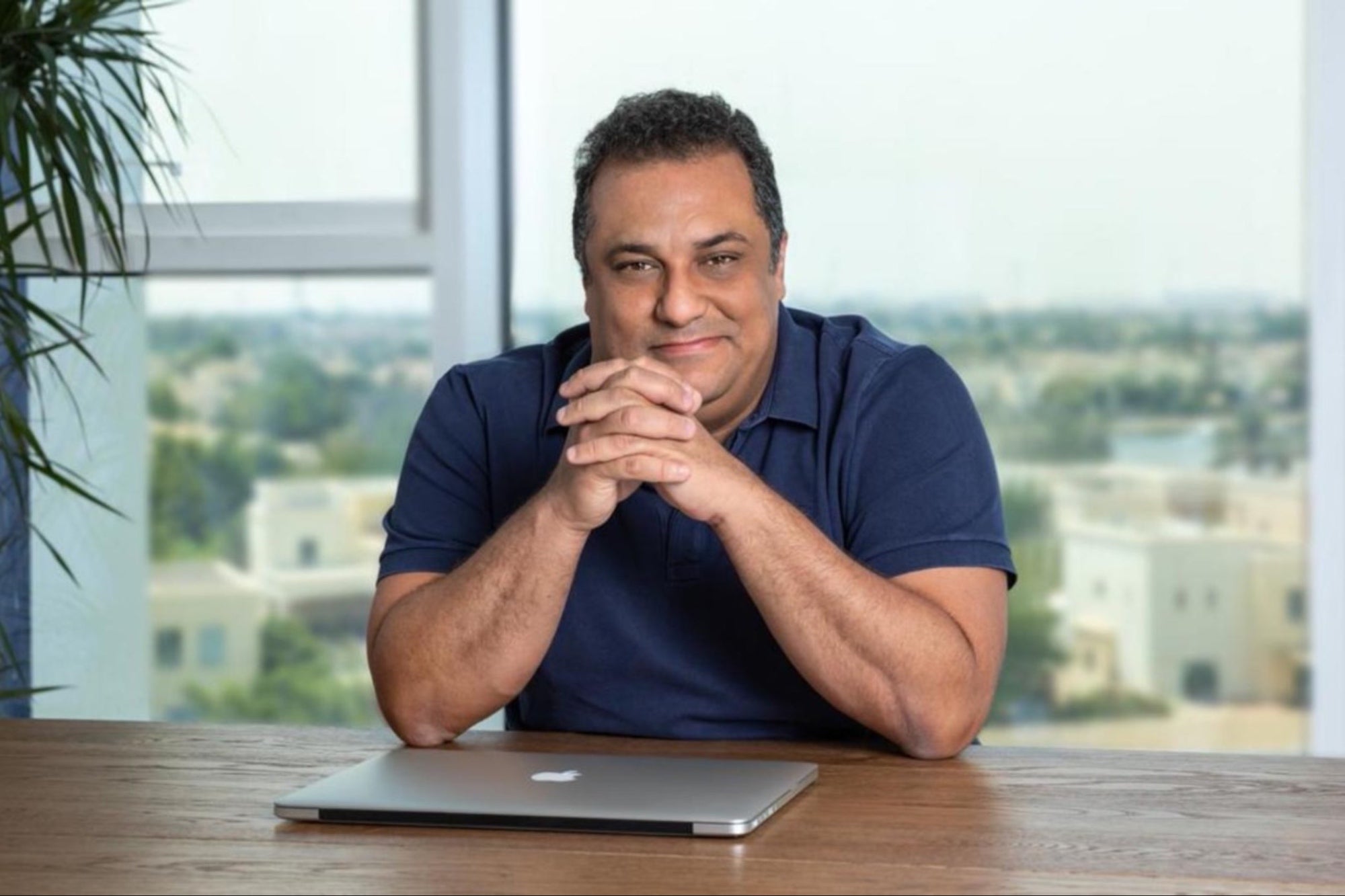Startup Funding: Hasan Haider, Founder and Managing Partner, Plus VC Hasan Haider, founder and Managing Partner, Plus VC, shows what drives investor trust and smart growth.
By Tamara Pupic
You're reading Entrepreneur Middle East, an international franchise of Entrepreneur Media.

This article is part of Startup Funding - Investor Insights Every Entrepreneur Needs by Entrepreneur Middle East, a series where the MENA region's leading venture capitalists share practical advice to help founders navigate the challenges of building and scaling a startup.
Hasan Haider, founder and Managing Partner, Plus VC, shows what drives investor trust and smart growth.
What are the top 3 things founders should absolutely do when preparing to raise their first round?
If I had to narrow it down to just three things founders should absolutely do when preparing to raise their first round, it would be these:
Read, a lot. There's an overwhelming amount of high-quality content out there, blog posts, podcasts, guides, even tweets, from founders, investors, and operators who've been through the process. You don't need to reinvent the wheel, but you also can't afford to walk into a fundraise unprepared. The founders who take the time to study the journey, understand investor expectations, and learn from other people's mistakes tend to move faster and make fewer costly errors.
Build a solid deck and story. Your pitch isn't just slides, it's the narrative of why your startup deserves to exist. A strong deck tells a story that flows: the problem, why it matters, how you're solving it, why you're the right team, and where this can go. Founders often underestimate how much clarity and simplicity matter here. If investors walk away unsure what you do, or unconvinced why it's exciting, you've already lost them.
Leverage your network for warm introductions. Fundraising is as much about who brings you into the room as it is about what you're building. Investors are bombarded with pitches; the ones that come via trusted referrals naturally get more attention. Tap into your advisors, angels, fellow founders, and mentors, these introductions can dramatically increase your chances of getting a real look, not just a polite pass.
Get these three things right: knowledge, story, and access, and you've already improved your odds of running a successful raise.
What are you really looking for when evaluating early-stage startups?
When we're evaluating early-stage startups, the single biggest thing we're looking for is a team with a bias toward execution. At the seed and pre-seed stages, there are more unknowns than knowns: markets shift, products pivot, and strategies evolve. What doesn't change is whether the founders can actually get things done.
I've seen countless decks with big visions and huge TAM slides, but the difference between good founders and great ones isn't the size of the dream: it's the speed and grit in execution. The best founders don't just talk about what they're going to do; they've already started proving it. They're out in the market, talking to customers, building MVPs, running experiments, shipping product, and iterating fast. They know that momentum compounds, and every step forward gives them more data, more credibility, and more investor confidence.
Ideas are cheap, markets are crowded, and capital is competitive. But a team that consistently shows they can move the ball forward, no matter how tough the conditions, stands out immediately. That bias to action, that hunger to make progress rather than wait for perfect conditions, is exactly what we're backing. Because in the end, execution is what turns good ideas into great companies.
Can you share a personal anecdote—either a pitch that truly impressed you, or one that missed the mark and why?
The best investments I've made weren't the result of long-winded pitches full of slides about concepts and product roadmaps. They all came down to one simple thing: "This is a founder I want to back and be part of their journey." A pitch doesn't need to be complicated: if you can clearly show me your ability to execute and some early signs of traction, that's enough.
Take Calo as an example. I was the first investor in the company. When Ahmed pitched me the idea, he didn't just talk about what he planned to build, he went out and proved it. Within weeks, not months, he had set up an MVP, started cooking meals, and was already delivering to paying customers. Honestly, the food wasn't great at that stage, but what stood out was his speed, grit, and ability to execute. That told me far more about his potential as a founder than any polished deck ever could, and it's why I made the decision to invest so quickly.
How should founders approach a "no"? What's the best way to build long-term investor relationships even if they don't get a cheque right away?
A "no" is never the end of the conversation, it's just the answer for now. Every founder will hear it, often more than they'd like, but what really matters is how you respond. The worst thing you can do is get defensive, argumentative, or take it personally. Investors pass for all kinds of reasons like fund strategy, timing, bandwidth, or simple fit, not just because they don't believe in you.
The golden rule here is: never burn bridges. The venture world is small, and reputations travel fast. A graceful response to a rejection says a lot about how you'll handle the inevitable ups and downs of building a company. Instead of shutting the door, keep it open by staying in touch.
The best founders I've seen send regular, concise updates: monthly or quarterly notes on progress, wins, challenges, and asks. Over time, those updates build trust and credibility. Investors who passed on your round might circle back when they see your traction, or they might introduce you to others in their network. Either way, you're building a long-term relationship that can pay off later.
Remember: today's "no" can become tomorrow's "yes," but only if you leave the right impression and keep showing progress.
What startup sector or trend are you most excited about right now—and why?
We don't chase sectors or trends just because they're perceived as hot. By the time something is being talked about as the "next big thing," it's usually already too late from an investment perspective: valuations are inflated, competition is fierce, and the best opportunities have been picked over.
Right now, everyone is talking about AI. But instead of diving headfirst into hype-driven deals, we've taken a more disciplined approach. We waited until we saw real founders building real companies, where AI isn't the story in itself but a tool in their arsenal: something that makes the business stronger, smarter, and more defensible. That's the kind of application we find exciting, because it's grounded in execution rather than noise.
Instead, our focus has always been on the founders themselves. If you back exceptional founders with the ability to execute, they'll often create the trends rather than follow them. And by staying disciplined on that approach, we often find ourselves invested in companies well before the hype cycle begins. That's where the real opportunity lies: supporting great teams early, and letting the market catch up later.











